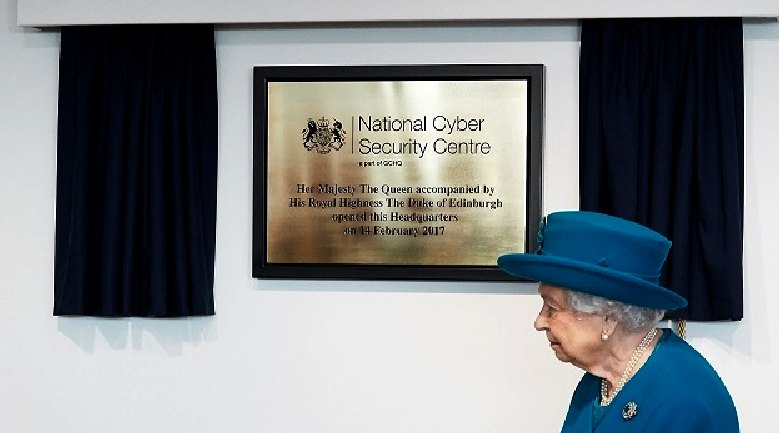The Criminal
Law Act 1977
The The Criminal Law Act 1977 (c.45) is an Act of the Parliament of the
United
Kingdom. Most of it only applies to England and Wales. It creates the offence of
conspiracy in English law. It also created offences concerned with criminal trespass in premises, made changes to sentencing, and created an offence of falsely reporting the existence of a bomb.
CRIMINAL
LAW ACT 1977 - 1977 CHAPTER 45
An Act to amend the law of
England and Wales with respect to criminal conspiracy; to make new provision in that law, in place of the provisions of the common law and the Statutes of Forcible Entry, for restricting the use or threat of violence for securing entry into any premises and for penalising unauthorised entry or remaining on premises in certain circumstances; otherwise to amend the criminal law, including the law with respect to the administration of criminal justice; to provide for the alteration of certain pecuniary and other limits; to amend section 9(4) of the Administration of Justice Act 1973, the
Legal Aid Act 1974, the Rabies Act 1974 and the Diseases of Animals (Northern Ireland) Order 1975 and the law about juries and coroners’ inquests; and for connected purposes.
Part I Conspiracy
- 1 The offence of conspiracy
(1) Subject to the following provisions of this Part of this Act, if a person agrees with any other person or persons that a course of conduct shall be pursued which will necessarily amount to or involve the commission of any offence or offences by one or more of the parties to the agreement if the agreement is carried out in accordance with their intentions, he is guilty of conspiracy to commit the offence or offences in question.
(2) Where liability for any offence may be incurred without knowledge on the part of the person committing it of any particular fact or circumstance necessary for the
commission of the
offence, a person shall nevertheless not be guilty of conspiracy to commit that offence by virtue of subsection (1) above unless he and
at least one other party to the agreement intend or know that that fact or circumstance shall or will exist at the time when the conduct constituting the offence is to take place.
(3) Where in pursuance of any agreement the acts in question in relation to any offence are to be done in contemplation or furtherance of a trade dispute (within the meaning of the Trade Union and Labour Relations Act 1974) that offence shall be disregarded for the purposes of subsection (1) above provided that it is a summary offence which is not punishable with imprisonment.
(4) In this Part of this Act " offence " means an offence triable in England and Wales, except that it includes
murder notwithstanding that the murder in question would not be so triable if committed in accordance with the intentions of the parties to the agreement.
2 Exemptions from liability for conspiracy
(1) A person shall not by virtue of section 1 above be guilty of conspiracy to commit any offence if he is an intended victim of that offence.
(2) A person shall not by virtue of section 1 above be guilty of conspiracy to commit any offence or offences if the only other person or persons with whom he agrees are (both initially and at all times during the currency of the agreement) persons of any one or more of the following descriptions, that is to say—
(a) his spouse;
(b) a person under the age of criminal responsibility ; and
(c) an intended victim of that offence or of each of those offences.
(3) A person is under the age of criminal responsibility for the purposes of subsection (2)(b) above so long as it is conclusively presumed, by virtue of section 50 of the Children and Young Persons Act 1933, that he cannot be guilty of any offence.
3
Penalties for conspiracy
(1) A person guilty by virtue of section 1 above of conspiracy to commit any offence or offences shall be liable on conviction on indictment—
(a) in a case falling within subsection (2) or (3) below, to imprisonment for a term related in accordance with that subsection to the gravity of the offence or offences in question (referred to below in this section as the relevant offence or offences); and
(b) in any other case, to a fine. Paragraph (b) above shall not be taken as prejudicing the application of section 30(1) of the Powers of Criminal Courts Act 1973 (general power of court to fine offender convicted on indictment) in a case falling within subsection (2) or (3) below.
(2) Where the relevant offence or any of the relevant offences is an offence of any of the following descriptions, that is to say—
(a) murder, or any other offence the sentence for which is fixed by law;
(b) an offence for which a sentence extending to imprisonment for life is provided ; or
(c) an indictable offence punishable with imprisonment for which no maximum term of imprisonment is provided,
the person convicted shall be liable to imprisonment for life.
(3) Where in a case other than one to which subsection (2) above applies the relevant offence or any of the relevant offences is punishable with imprisonment, the person convicted shall be liable to imprisonment for a term not exceeding the maximum term provided for that offence or (where more than one such offence is in question) for any one of those offences (taking the longer or the longest term as the limit for the purposes of this section where the terms provided differ). In the case of an offence triable either way the references above in this subsection to the maximum term provided for that offence are references to the maximum term so provided on conviction on indictment.
4
Restrictions on the institution of proceedings for conspiracy
(1) Subject to subsection (2) below proceedings under section 1 above for conspiracy to commit any offence or offences shall not be instituted against any person except by or with the consent of the Director of Public Prosecutions if the offence or (as the case may be) each of the offences in question is a summary offence.
(2) In relation to the institution of proceedings under section 1 above for conspiracy to commit—
(a) an offence which is subject to a prohibition by or under any enactment on the institution of proceedings otherwise than by, or on behalf or with the consent of, the Attorney General, or
(b) two or more offences of which at least one is subject to such a prohibition,
subsection (1) above shall have effect with the substitution of a reference to the Attorney General for the reference
to the Director of Public Prosecutions.
(3) Any prohibition by or under any enactment on the institution of proceedings for any offence which is not a summary offence otherwise than by, or on behalf or with the consent of, the Director of Public Prosecutions or any other person shall apply also in relation to proceedings under section 1 above for conspiracy to commit that offence.
(4) Where—
(a) an offence has been committed in pursuance of any agreement; and
(b) proceedings may not be instituted for that offence because any time limit applicable to the institution of any such proceedings has expired,
proceedings under section 1 above for conspiracy to commit that offence shall not be instituted against any person on the basis of that agreement.
5
Abolitions, savings, transitional provisions, consequential amendment and repeals
(1) Subject to the following provisions of this section, the offence of conspiracy at common law is hereby abolished.
(2) Subsection (1) above shall not affect the offence of conspiracy at common law so far as relates to
conspiracy to
defraud, and section 1 above shall not apply in any case where the agreement in question amounts to a
conspiracy to defraud at common law.
(3) Subsection (1) above shall not affect the offence of conspiracy at common law if and in so far as it may be committed by entering into an agreement to engage in conduct which—
(a) tends to corrupt public morals or outrages public decency; but
(b) would not amount to or involve the commission of an offence if carried out by a single person otherwise than in pursuance of an agreement.
(4) Subsection (1) above shall not affect—
(a) any proceedings commenced before the time when this Part of this Act comes into force;
(b) any proceedings commenced after that time against a person charged with the same conspiracy as that charged in any proceedings commenced before that time; or
(c) any proceedings commenced after that time in respect of a trespass committed before that time;
but a person convicted of conspiracy to trespass in any proceedings brought by virtue of paragraph (c) above shall not in respect of that conviction be liable to imprisonment for a term exceeding six months.
(5) Sections 1 and 2 above shall apply to things done before as well as to things done after the time when this Part of this Act comes into force, but in the application of section 3 above to a case where the agreement in question was entered into before that time—
(a) subsection (2) shall be read without the reference to murder in paragraph (a); and
(b) any murder intended under the agreement shall be treated as an offence for which a maximum term of imprisonment of ten years is provided.
(6) The rules laid down by sections 1 and 2 above shall apply for determining whether a person is guilty of an offence of conspiracy under any enactment other than section 1 above, but conduct which is an offence under any such other enactment shall not also be an offence under section 1 above.
(7) Incitement and attempt to commit the offence of conspiracy (whether the conspiracy incited or attempted would be an offence at common law or under section 1 above or any other enactment) shall cease to be offences.
(8) The fact that the person or persons who, so far as appears from the indictment on which any person has been convicted of conspiracy, were the only other parties to the agreement on which his conviction was based have been acquitted of conspiracy by reference to that agreement (whether after being tried with the person convicted or separately) shall not be a ground for quashing his conviction unless under all the circumstances of the case his conviction is inconsistent with the acquittal of the other person or persons in question.
(9) Any rule of law or practice inconsistent with the provisions of subsection (8) above is hereby abolished.
(10) In section 4 of the Offences against the Person Act 1861—
(a) the words preceding " whosoever " shall cease to have effect; and
(b) for the words from " be kept" to " years " there shall be substituted the words
“imprisonment for life”.
(11) Section 3 of the Conspiracy and Protection of Property Act 1875 shall cease to have effect.
3 Penalties for conspiracy
(1) A person guilty by virtue of section 1 above of conspiracy to commit any offence or offences shall be liable on conviction on indictment—
(a) in a case falling within subsection (2) or (3) below, to imprisonment for a term related in accordance with that subsection to the gravity of the offence or offences in question (referred to below in this section as the relevant offence or offences); and
(b) in any other case, to a fine. Paragraph (b) above shall not be taken as prejudicing the application of section 30(1) of the Powers of
Criminal Courts Act 1973 (general power of court to fine offender convicted on indictment) in a case falling within subsection (2) or (3) below.
(2) Where the relevant offence or any of the relevant offences is an offence of any of the following descriptions, that is to say—
(a) murder, or any other offence the sentence for which is fixed by law;
(b) an offence for which a sentence extending to imprisonment for life is provided ; or
(c) an indictable offence punishable with imprisonment for which no maximum term of imprisonment is provided,
the person convicted shall be liable to imprisonment for
life.
(3) Where in a case other than one to which subsection (2) above applies the relevant offence or any of the relevant offences is punishable with imprisonment, the person convicted shall be liable to imprisonment for a term not exceeding the maximum term provided for that offence or (where more than one such offence is in question) for any one of those offences (taking the longer or the longest term as the limit for the purposes of this section where the terms provided differ). In the case of an offence triable either way the references above in this subsection to the maximum term provided for that offence are references to the maximum term so provided on conviction on indictment.

NCSC
ROYAL OPENING - Her Majesty The Queen opened the NCSC on the 17th of
February 2017. There are several agencies in the UK that are supposed to
tackle fraud, cyber crime, drugs, sex trafficking and money laundering,
but when you ask any one of them to take a look at corruption in
Wealden-land, they don't appear too anxious to open a case
file. It's
more a case of pass the buck .... and keep passing it ... until the
complainant fades away. Sorry to have to report this to you Your
Majesty, but it is the truth the whole truth and nothing but the truth -
so help me God.


NEGLIGENCE:
If your legal team do not mount a full defence, your right to a fair
trial as per Article 6 may have been
compromised. If the investigating officers decide to ignore evidence
found at the alleged scene of a crime that points away from guilt, they
have a duty to collect that evidence and present it to the defence as
part of a fair and balanced investigation as per their Codes of Practice
Order April 2005.
In
the case in question Gordon Staker, James Hookway and Jo Pinyoun failed
to secure the diaries of the Psychiatric Nurse, who hid her work
diary in her loft to prevent Sussex
police from including it in their evidence for disclosure. These
officers also failed to include the hand written entries of the
Psychiatric Community Nurse in the defendant's diaries, reminding him
about Valentines
Day. The Crown Prosecution Service obtained a conviction using a
Valentines Day card sent to the claimant, without the defence being able
to show why that was. In the absence of an explanation the Jury found
the accused guilty, not based on any eye witness testimony other than
that of the complainant, but also including junk
science in the equation where a perfectly innocent and naturally occurring
mark on the girl's hymen was said
to be indicative of assault - when in fact all women and girls have such
features from a young age.
The
CPS
further disadvantaged the defence by not supplying colour photocopies of
selected diary pages to enable the defence to disprove an allegation as
to menstruation cycles on the part of the Psychiatric Community Nurse.
We
consider that the standard of investigation by these police officers
constitutes a serious malfeasance in public officer where they worked
together to conceal the evidence that the defence needed to mount any
kind of robust rebuttal.

SUSSEX
POLICE A
- Z OF OFFICER INVESTIGATIONS
Aran
Boyt
Chris
Sherwood
Colin
Dowle
Dave
Tye
Jane
Rhodes
Jo
Pinyoun
Joe
Edwards
Giles
York
Gordon
Staker
James
Hookway
Kara
Tombling
Keith
Lindsay
Keith
Stoneman
Ken
Jones
Maria
Wallis
Mark
Jordan
Martin
Richards
Neil
Honnor
Nigel
Yeo
Olivia
Pinkney
Paul
Whitehouse
Peter
Coll
Robert
Lovell
Sarah
Jane Gallagher
Sir
Ken Macdonald QC
Timothy
Motram




Victorio
Patrick Scarpa, Christine Nuttall, David Phillips & Charles (Charlie) Lant


Kelvin
Williams, J. Douglas Moss and Ian M. Kay











